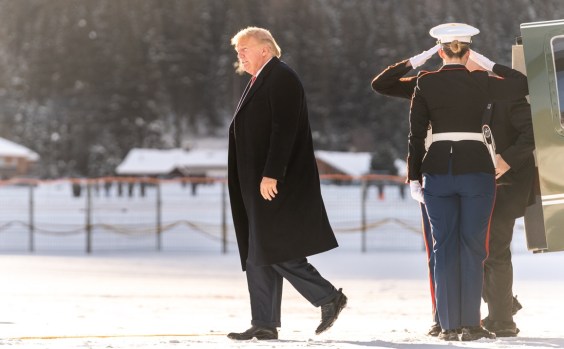Charlotte Mayor Anthony Foxx's Senate hearing was, by all accounts, the one "oasis of calm" on an otherwise stormy Capitol Hill yesterday. There were no sharp exchanges, no tense moments, not even any particularly tough questions. Two weeks from today, we'll probably be calling him "Mister Secretary."
Cabinet nominees often spend all their time on the witness stand at these hearings dodging questions, saying they'll "look into that and get back to you." But Foxx gave some real answers. He was well-informed and confident, and when senators asked him how he would handle thorny issues like funding constraints and modal silos, Foxx reassured them that he had ably handled the same issues as mayor.
TIGER. Foxx spoke with authority about TIGER, having managed TIGER grants in Charlotte that he felt did a lot of good. The city got $18 million in 2011 for additional power substations and extended platforms at three stations on its expanded light rail Blue Line. Foxx said that constraints of formula funding had hindered them from building the platforms right the first time, and it was a testament to TIGER's flexibility and multimodalism that it was able to step in and fill that gap.
Funding. Senators seemed determined to try to scare Foxx by reminding him of the funding emergency confronting the department, but he remained sanguine. He didn't show his hand about what solutions he had in mind -- and it's Congress's decision anyway -- but he indicated that they'll have to "think outside the box," as his predecessor, Ray LaHood, liked to say. To his credit, Foxx did not follow Obama's line and promise to pay for transportation with war savings.
He also had a very reasonable response to Sen. Ted Cruz (R-TX) who asked him to make sure that the sequester and any future spending cuts be implemented with a minimal amount of pain to consumers, targeting only "waste, fraud and abuse." Foxx refused to take the bait. He said that, certainly, they would seek to minimize pain, but there would be some. If lawmakers are going to continue to cut programs, they can't fool themselves into thinking that there won't be consequences.
Tolling. Foxx indicated he would continue the current policy of allowing tolling only on new federally-funded roads to pay for their construction -- not on existing roads to pay for their maintenance. He said tolling "has a place" but "we’re not going to toll our way to prosperity." Maybe not, but it sure could help. Allowing state DOT's to toll existing interstates -- something many agencies want to do -- could result in wringing more efficiency out of the transportation network without building expensive new infrastructure.
Bike/ped. Foxx was lucky not to get a lot of annoying questions about whether transit and active transportation belong in the federal budget. Quite the opposite -- the only mention was from Sen. Amy Klobuchar (D-MN) who wanted him to promise her to keep funding for the Recreational Trails Program, which barely survived the MAP-21 negotiations. Disappointingly, he wouldn't give her a straight answer on that. It would have been nice to hear a full-throated defense of the federal role in programs to make bicycling and walking safer and more convenient.
Performance requirements. Foxx didn't get into details, but he mentioned performance measures several times. He said they were one of the best aspects of MAP-21, and something that should be continued in the next bill. Holding states responsible for the money they spend is key to a well-functioning transportation system, especially in such tight times. We'll be interested to hear what kinds of performance measures he'd like to see. Will they measure vehicle throughput or air quality, congestion delays or mobility?
Technology. Foxx mentioned technology many times, particularly as a way to wring greater efficiency out of the system and "do more with less," in Washington parlance.
Perhaps he was worried about fielding a lot of probing questions about his relative lack of experience and thought that by showing a comfort with technology, he would show the benefit of having a young person (he's just 42) at the helm of the agency. As it happened, no one questioned his qualifications to be secretary.
Transit-Oriented Development. Charlotte has been a leader in TOD in recent years. Foxx didn't mention it by name, but he did say that when confronted with a budget that was about 1/5 the size of what he needed, he looked for projects that would do the best job of "connecting people to jobs and global marketplace," like siting housing and commercial development near transportation.
Infrastructure Bank. As an Obama nominee, Foxx would be hard-pressed to go against one of the president's signature transportation proposals, and he did offer some lukewarm support for the idea. But he made it clear that an I-bank alone won't extract money from the private sector. Investors want to know that the federal government has some skin in the game too, and so funding -- not just financing -- is necessary.
Distracted driving. Foxx said he would continue LaHood's work on distracted driving and that it's now "baked into the DNA" at DOT. Undoubtedly, though, Foxx will find his own issue to put his stamp on as well.





